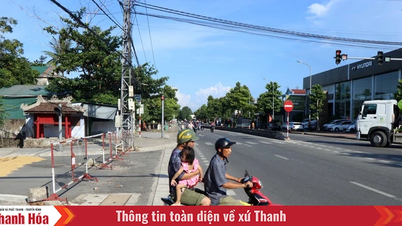1-"Bankruptcy", not "Bankruptcy"
It should be written as Tan gia bai san, because tan 散 is a word of Chinese origin, meaning to dissipate, to lose. Tan gia bai san 散家敗產 = all assets and property dissipated.
The idiom "Tần gia bảo Sản" only appears in Vietnamese. However, the Chinese origin of "Tần gia bảo Sản" is a number of synonymous versions such as "Khuynh gia bịt Sản" - 傾家敗產 (the word "khuynh" here means "finished, bankrupt"); "Khuynh gia dang sanh" 傾家蕩產 (the word "dang" here means "dispersed, devastated"); "Dang sanh khuy gia" 蕩產傾家; "Khuynh gia giáết Sản" 傾家竭產 (the word "kiet" here means "finished"). As for "tang gia" 葬家 (or "tang su" 葬師), it means a geomancer or a feng shui master (choosing a grave).
2- “Deeply hearted”, not “Deeply hearted”
It should be written as Tang tan luong tam, because tang 喪 here means to lose, to lose. Tang tan luong tam 喪盡良心 has the Chinese origin of Tang tan thien luong 喪盡天良, referring to someone who no longer has humanity, is extremely cruel and evil. (The word "thien luong" is synonymous with "liang tam", referring to the natural goodness of humans).
3- "Flock failure", not "Flock failure"
Regarding "sậy" and "vì", some words are often confused, leading to spelling mistakes such as "sậy chân" written as "sậy chân"; "Sậy đàn tan nghe" written as "Xậy đàn tan nghe"; "Sậy nhà ra bất nghiệp" written as "Xậy nhà ra bất nghiệp",...
Xậy (or hành) is used in the context of happening (an event), different from sậy/sậy/sếnh which means loss, falling, missing out, parting... For example, "slipping down the arm" (If one person loses, the other gains, nothing is lost; often used in the case of two people who are close, synonymous with "falling through the sieve and into the tray"), "slipping out" (accidentally saying something that shouldn't be said, and can't be taken back in time); "slipping the foot" is better than "slipping the mouth"; "slipping the foot" can be helped, "slipping the mouth" can't be helped (careless, thoughtless words cause serious consequences, can't be taken back); "losing the father, still has the uncle, losing the mother, still has the aunt" (When the parents are gone, the closest person one can rely on is the father's younger brother, the mother's younger sister); "a slipped fish is a big fish" (People often have a mentality of regretting their loss, considering the value of lost things to be greater than reality); The family is broken up and scattered,...
4- “Divide into five or seven” and “divide into five or seven”
If used with the meaning of being divided into many small parts, it must be written as Chia nam chia bay; for example, “(...) the golden pile of harvested rice in the middle of the yard was divided into five or seven, one part to pay the tax, one part to pay the debt and interest.” (Phan Tu). “Xe” in this case means to divide into many parts so that it is no longer a whole block. However, if used with the meaning of having to be divided, shared for many other people to enjoy, it can be written as “Chia nam chia bay.”
5- "Sharing the sweet and the bitter", not "sharing the sweet and the bitter"
It should be written as Chia ngot chia bui, to be correct. “Se” here means to share, to divide, to take out a portion (often used when referring to enjoying together) to give to others. For example: Sharing each other’s burdens ~ Loving each other, sharing roasted cassava, Sharing half a bowl of rice, sharing the same blanket - To Huu); The two people seemed to have become soul mates, sharing the sweet and the bitter together (Manh Phu Tu).
Thus, when using idioms and proverbs, writers must grasp the meaning of words that sound similar (in sound or rhyme) but have different meanings, in order to write them correctly.
Man Nong (CTV)
Source: https://baothanhhoa.vn/loi-chinh-ta-thuong-mac-khi-su-dung-mot-so-thanh-ngu-tuc-ngu-249031.htm





![[Photo] General Secretary To Lam attends the 80th anniversary of Vietnam's diplomacy](https://vphoto.vietnam.vn/thumb/1200x675/vietnam/resource/IMAGE/2025/8/25/3dc715efdbf74937b6fe8072bac5cb30)





















































![[E-Magazine] Petrovietnam – Strong steps to realize the “Epochal Transformation”](https://vphoto.vietnam.vn/thumb/402x226/vietnam/resource/IMAGE/2025/8/25/e745baade70f4e1e96f5314f65eac658)






































Comment (0)